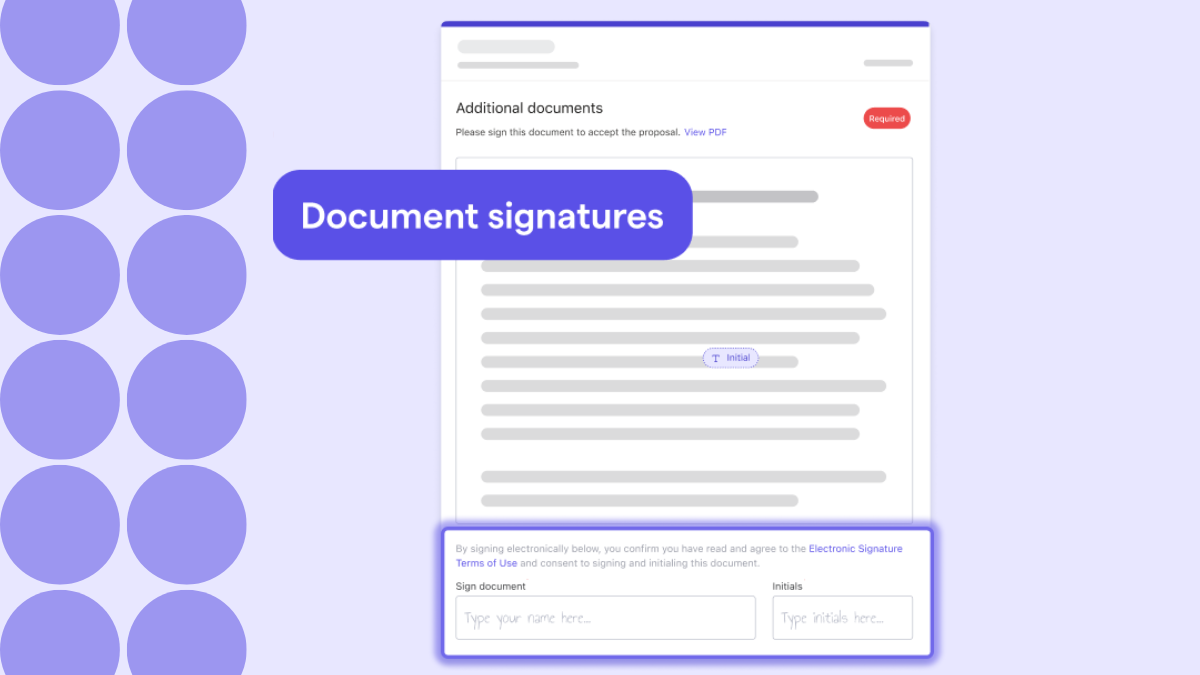Advisory services are a great way to deepen client relationships – but make sure you get engaged first

Subscribe to Dave New’s monthly blog: Get Dave’s exclusive insights about biggest opportunities and challenges facing accountants and bookkeepers – delivered straight to your inbox. Subscribe now.
Key takeaways
- In today's challenging economic climate, clients may increasingly seek financial guidance, making advisory services more essential than ever for accounting firms.
- Advisory services, from tax planning to risk management and more, can offer significant value beyond traditional compliance work.
- Customized client engagement letters are crucial for introducing advisory services, managing scope, setting expectations, and ensuring payment in accounting firms.
- Identifying advisory opportunities can take accountant-client relationships to the next level.
- Specificity and detail in engagement letters regarding project scope and fee structure are key to avoiding misunderstandings and ensuring clear expectations between accountants and clients.
If you’re an accountant and thinking about introducing advisory services – and you should be considering doing this if you’re looking to diversify revenue streams, deepen client relationships, and create stickier clients – customised client engagement letters are essential tools in your accounting firm toolbox.
Traditionally, when you’re doing tax preparation or compliance work, there will be a set charge you bill an individual or a business. This would be one line on an engagement letter – say, “your annual tax return for the year” – with a price beside it.
But the nature of advice can be a lot more open-ended, so you have to be significantly more specific about the scope of the advisory service you're offering.
Fortunately, you can tailor your all-important engagement letters to suit these new services – and new revenue streams. By doing so, you’ll enhance your client relationships, manage scope creep, and make sure you get paid for all the work you do.

Just what are advisory services in accounting?
Most public practitioners offer traditional compliance services all year round – that's their bread and butter. So it's an important distinction to make that we're talking about complementary advisory services – not replacing or at the expense of compliance work.
For as long as I can remember, the industry has been talking about the importance of firms growing their advisory services. The ironic part is many firms are probably already offering advisory services without realising it.
In short, ‘advisory’ refers to a large bucket of services that accountants can provide to their clients; it could include, for example, annual tax planning, entity reviews, risk management, and business restructuring.
But it's the recurring advice that people more commonly think of when they talk about advisory services. Those would be services such as monthly management reporting, regular cash flow reporting, results reporting (such as budget versus actual) and key performance indicator (KPI) monitoring – essentially, anything that involves tracking and advising on how the business is performing.
Why your engagement letter is key
During tough economic times, it’s not surprising that business owners want more assistance. And we've had a turbulent few years of significant business challenges – COVID, environmental disasters, high inflation, rising interest rates, supply-chain disruption – the list goes on.
So, when clients seek that advice – and they have been – it's vital for accountants to detail the scope and fee structure of that advisory work in a customised engagement letter. Otherwise, it could leave you with an open-ended exposure.
Accountants need to make sure they're correctly setting expectations of what they're going to deliver to minimise any misunderstandings or potential disputes that could arise and maintain a trusted relationship between accountant and client.
Identifying advisory opportunities
If you’re already doing compliance work for clients, keep in mind that your client conversations and other requests from clients can open the door to doing advisory services for them, such as cash flow management.
The simple equation is that more client conversations equal more trust in the relationship, which equals more chances of clients confiding in you; it’s healthy for the accountant-client relationship – even if you meet with your client only once a year for compliance work.
Business owners look to their accountant as the gatekeeper to their finances, and if they need more help, it’s natural for them to come to their accountant. But now, accountants have the potential to flip that situation on its head and be more proactive.
Most accountants now have access to their clients’ live data – and clients have multiple compliance reasons to check with their accountants (for quarterly BAS, and so on) – so if you notice trends, pick up the phone and talk to them about it.
The client will always appreciate proactive attention from their accountant – it’s an opportunity to show that you can do more than a tax return.
It may surprise some accountants, but many clients are not even aware of these additional services – they think of accounting as more traditional services such as tax returns, self-managed superannuation and family trust accounts.
Accountants new to advisory services
If you’ve never offered or provided advisory services before, the first step is ensuring that you're confident in offering the service and have the capacity to do so. Never commit to something that you can't confidently deliver on. Then, once you know what kind of advisory services you're comfortable offering, make sure your team is well-trained to professionally deliver them.
Next, select a small number of clients that you've vetted that need a particular advisory service. You might have identified a need for cash flow forecasting, for example. Approach those clients, let them know the trends you've observed, and outline how you think you can tangibly help them.
From there, you can right-price it over subsequent periods. People often have to see the value before they can appreciate what you're charging them for it.
Benefits of advisory services for accounting firms
By introducing advisory services, accounting firms reap three primary rewards:
- Stronger client relationships and stickier clients who are less likely to leave you for another firm.
- Guaranteed recurring revenue, if the service is repeated on a monthly or quarterly basis (as is the case for most advisory work), particularly management reporting and cash flow forecasting.
- Revenue growth without having an extra client relationship to manage, as you’re working with existing clients. In effect, you're getting more money from fewer clients – isn’t that every accountant’s ultimate goal?
Overcoming scope creep with strategic engagement
To enjoy these benefits, managing expectations is key. And the key to managing expectations is your client engagement letter. There’s no real contract with an accountant – generally, the engagement letter is all you've got. It must be well-worded and meticulously detail the scope of service you're providing.
The document captures the expectations of client and accountant alike, and is agreed to, and signed off. Everybody knows what's included but, more importantly, what's not included.
Don’t worry, you always have the ability to charge for one-off work if something comes up or something’s out of scope.
Remember to add a paragraph in your engagement letter that deals with ad hoc and out-of-scope work, allowing you to confidently and easily invoice these items using Ignition’s Instant Bill feature. You can also easily adjust the scope of work for existing client engagements using the Service Edits feature.
Winning with advisory services
Oyster Hub is a prime example of a firm that has moved beyond day-to-day compliance with advisory services – and the help of Ignition. The Sydney-based accounting and advisory firm introduced Ignition to bridge the gaps in its client engagement process and now uses Ignition as its first point of control for all client engagements.
According to the company’s co-founder, Adarsh Dutt, the pandemic pushed accountants to deliver more than their traditional accounting and compliance service.
Clients required a lot more advice, so Adarsh built out a virtual CFO arm of his business and started providing value-added advisory services to his client base. He was able to do this in part thanks to the time Ignition helped Oyster Hub save on engagement letters and other admin.
LIke Oyster Hub, you can look to compliance and advisory services to generate year-round revenue for your firms.
What do you need to do?
First, get your advisory services engagement letters in order. You can either create your own customised version or, easier still, get a head start using Ignition’s legally-vetted industry standard terms.

Then, check out the Ignition blog. It has a number of downloadable resources that can also help you grow in this direction. Get started with this deep-dive blog on How to choose which advisory services to offer in your accounting practice
Also read our recent three-part series on how to use Ignition to offer game-changing strategic advice for your clients:


